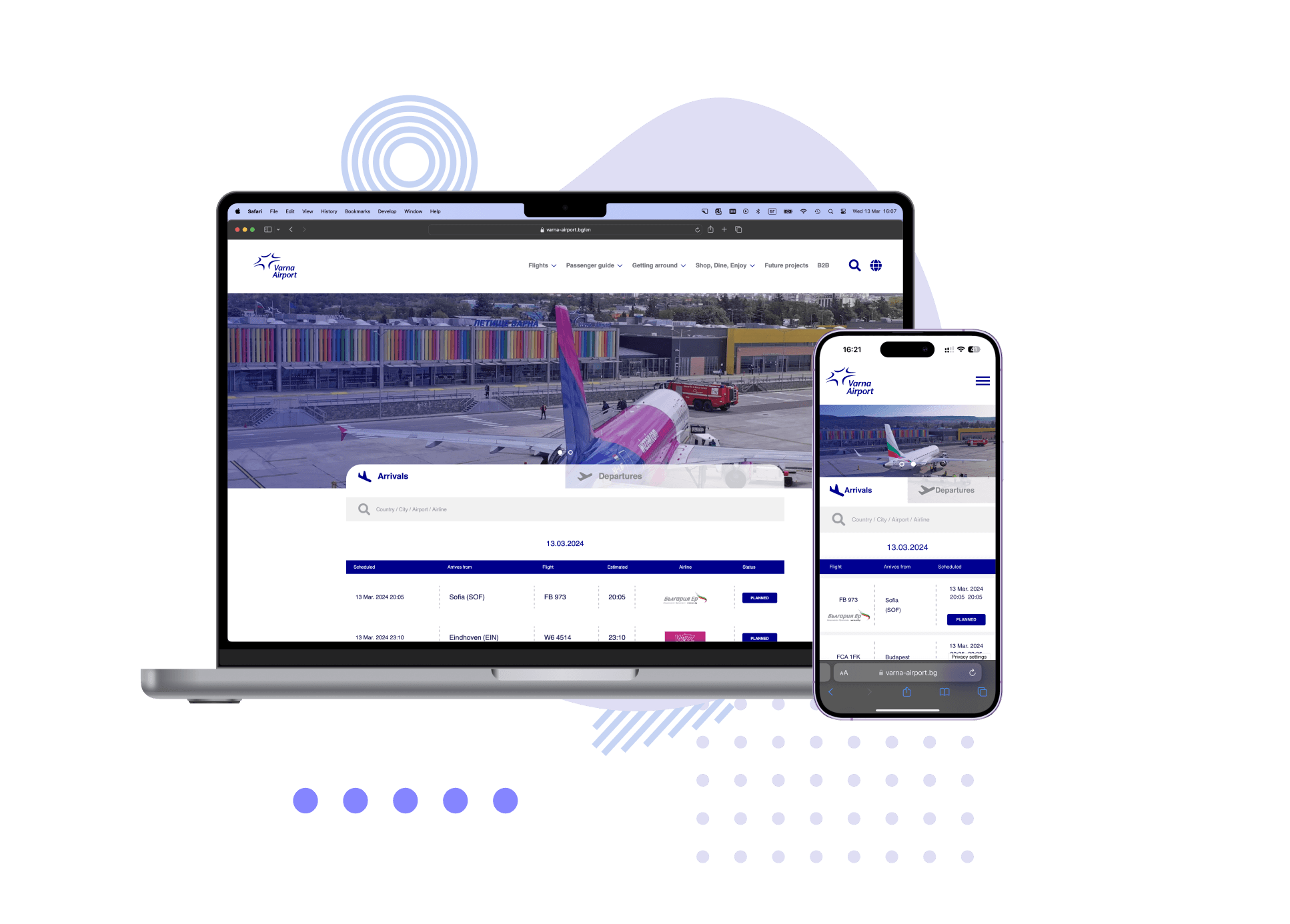Enhance your software development lifecycle with our DevOps experts. Contact us today to discuss your project and discover how we can optimise your operations for faster, more secure deliveries.
Accelerate your development with expert DevOps engineering
Enhance your software development lifecycle with our comprehensive DevOps engineering services. We streamline your operations, automate processes, and enable continuous delivery, ensuring faster time-to-market and improved product quality.

Our DevOps implementation services
- Assessment & planning: Evaluate your current processes and define a tailored DevOps strategy.
- Roadmap development: Create a strategic plan to integrate DevOps practices across your organisation.
- Pipeline automation: Implement CI/CD pipelines for seamless integration and faster deployments.
- Automated testing: Ensure code quality with automated testing frameworks.
- Release management: Streamline the release process to deliver updates efficiently.
- IaC implementation: Use tools like Terraform and Ansible to automate infrastructure provisioning and management.
- Cloud infrastructure management: Design and manage scalable cloud infrastructure using IaC practices.
- Real-time monitoring: Implement monitoring solutions to track application performance and infrastructure health.
- Alerting & incident management: Set up automated alerts and efficient incident management processes.
- Performance tuning: Optimise application and infrastructure performance through continuous monitoring.
- Security automation: Integrate security practices into your DevOps pipeline.
- Compliance management: Ensure that all deployments meet regulatory and compliance standards.
- Vulnerability management: Regularly scan and remediate security vulnerabilities.
- Docker & Kubernetes: Containerize applications and manage them at scale with Kubernetes.
- Microservices architecture: Break down monolithic applications into manageable microservices.
- Bare metal to cloud: Seamlessly migrate your on-premises infrastructure to the cloud.
- Cloud to cloud: Move workloads between different cloud providers with minimal disruption.
- Monolith to microservices: Transform monolithic applications into agile, cloud-native microservices.
Collaboration models
- Skilled engineers: Add DevOps experts to your existing team to enhance capabilities.
- Flexible engagement: Scale your team according to project demands.

- End-to-end management: A dedicated team manages the entire DevOps lifecycle.
- Seamless integration: Our teams integrate smoothly with your workflows to ensure efficiency.

- Strategic insights: Expert advice on implementing and optimising DevOps practices.
- Tailored solutions: Develop customised strategies to fit your business needs.

Why choose us?
Extensive experience with tools like Jenkins, Docker, Kubernetes, Terraform, and more

Custom DevOps solutions designed to meet your specific operational needs

We prioritise automation to streamline processes, reduce errors, and increase efficiency

DevSecOps practices are integrated into our approach, ensuring your applications remain secure

A track record of successful DevOps implementations across various industries

Ongoing assistance to adapt and evolve your DevOps practices as your business grows

Key benefits of our DevOps services
Accelerate your development cycles with automated CI/CD pipelines
Break down silos between development and operations for seamless teamwork
Easily scale your infrastructure and applications with containerization and IaC practices
Reduce operational costs through automation and efficient resource management
Leverage real-time monitoring and feedback to continuously optimise your processes
Integrated security practices ensure your DevOps processes are secure from development to deployment
DevOps tools and platforms

























Ready to elevate your development infrastructure process?

Our DevOps engineering projects
What our clients have to say?
FAQs
DevOps engineering services encompass the integration of development and operations practices, focusing on automation, continuous integration, and continuous deployment to improve efficiency and reduce time-to-market.
DevOps enhances collaboration between development and operations teams, automates repetitive tasks, and ensures faster, more reliable software releases.
We use a wide range of tools including Jenkins, Docker, Kubernetes, Terraform, and Prometheus, tailored to fit your specific needs.
Yes, we integrate security practices throughout the DevOps pipeline (DevSecOps) to ensure your applications are secure from the start.
Get insights into DevOps engineering
GET IN TOUCH














